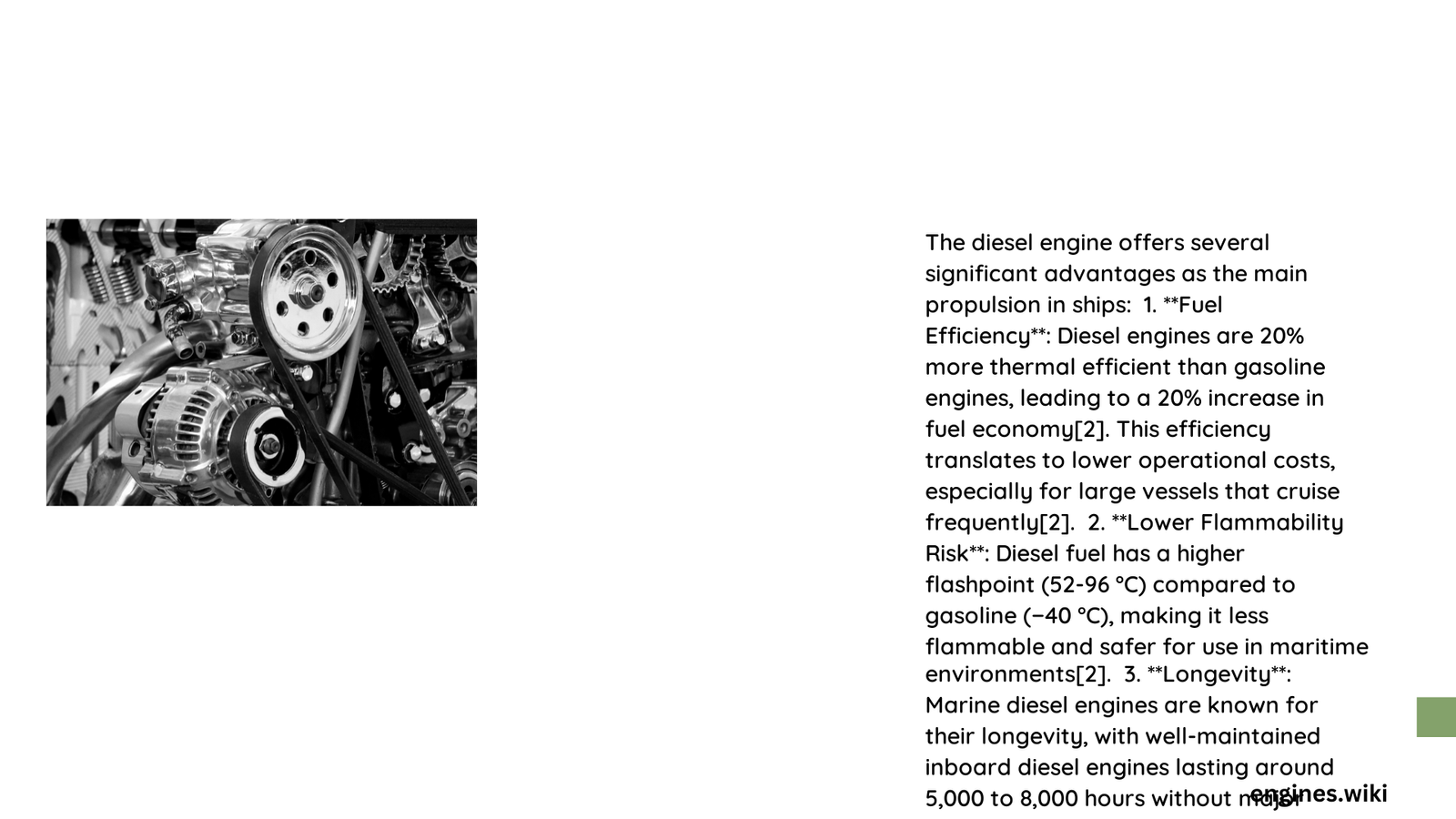Diesel engines have revolutionized maritime transportation by offering unparalleled performance and efficiency in ship propulsion systems. These robust powerhouses deliver exceptional thermal conversion, remarkable fuel economy, reduced environmental impact, and superior operational reliability across diverse maritime conditions, making them the preferred choice for commercial and naval vessel propulsion worldwide.
Why Are Diesel Engines Superior for Maritime Propulsion?
What Makes Diesel Engines Thermally Efficient?
Diesel engines represent a pinnacle of engineering excellence in maritime propulsion, characterized by extraordinary thermal efficiency. Modern marine diesel engines can achieve remarkable energy conversion rates, with some low-speed variants reaching up to 54.4% overall efficiency.
Key Thermal Efficiency Metrics
| Efficiency Parameter | Performance Range |
|---|---|
| Thermal Efficiency | 50-55% |
| Energy Conversion | 54.4% (Maximum) |
| Optimal Load Setting | 85% MCR |
How Do Diesel Engines Optimize Fuel Consumption?
Fuel economy remains a critical consideration in maritime operations. Diesel engines excel in this domain through:
- Low Specific Fuel Consumption (SFC)
- Typical SFC range: 155-225 g/kWh
- Consistent performance at 75-85% maximum continuous rating
-
Predictable fuel consumption patterns
-
Economic Advantages
- Reduced operational costs
- Lower fuel expenditure per nautical mile
- Extended operational range
What Environmental Benefits Do Diesel Engines Provide?
Modern marine diesel engines demonstrate significant environmental improvements:
- Reduced Emissions
- Lower NOx emissions (< 3.4 g/kWh)
- Minimal SOx emissions with low-sulfur fuels
-
Controlled particulate matter output
-
Compliance with International Regulations
- Meeting IMO Tier II and Tier III standards
- Advanced emission control technologies
- Sustainable maritime transportation
How Do Maintenance Requirements Compare?
Diesel engines offer streamlined maintenance strategies:
- Predictable Service Intervals
- Regular oil changes
- Systematic filter replacements
-
Comprehensive diagnostic capabilities
-
Cost-Effective Maintenance
- Annual maintenance costs: $50,000 – $200,000
- Lower long-term operational expenses
- Extended engine lifecycle
What Technical Advantages Distinguish Diesel Propulsion?
Technical superiorities include:
- Robust mechanical design
- High power-to-weight ratio
- Adaptability to various vessel types
- Reliable performance in challenging maritime environments
Conclusion
Diesel engines represent a sophisticated propulsion solution, balancing technological innovation, economic efficiency, and environmental responsibility in maritime transportation.

